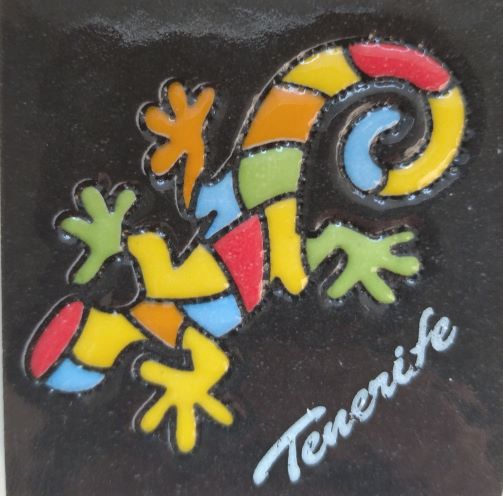
Should we? Can we? Is it a good idea? Is it going to work? Is it legal? What will the students think? What will the students’ parents think? Have we just so got used to what we have been doing all our life that we don’t even want to consider the benefits of the other approach? Have we been brainwashed enough so that now that idea sounds like a blasphemy?
To be honest, I have no idea and I have no answers. I am setting off on this particular adventure with all the questions in the world and no answers yet, rejoicing the fact that the EFL world has (slowly) started to talk about the use of L1 in the EFL class.
But, although this is a very interesting topic, I would like to seriously narrow it down and focus on, surprise surprise, the presence of L1 when the students are real beginners and about 5 or 7 years old. Or 3. Or 6. Or 8 even. Then the question shifts from ‘Shall we have L1 in class?’ to ‘What do we do about the L1 in class?’, because, whether you want it or not, L1 will be there.
Before we start, I think it is important that I shed a bit of light on my background: I am here as an experienced EFL teacher and a teacher trainer who works in a private language school and who speaks her students’ L1 but who does not use it in front of the kids. In the past I also had a chance to work with young (and younger) kids whose langauge I did not speak at all. These details are factors which, potentially, at least, might have had an impact on my attitude to L1 and its place in the classroom.
This is the opening post to a series that I have been dreaming about for a long time and in which I would like to include not only my experience but also the overview of what our YL gurus think on the subject, the studies carried out so far and what I have found out while researching for my own MA dissertation.
In lieu of an introduction, a few overheard conversations. The text in italics is the translation of the exchange that initially happened in the students’/parents’ L1.

One: overheard in the classroom aka The Kids Want To Talk
T: What happened?
S6: One of my teeth fell out all by itself and the other one, Sasha (brother) pulled out.
T: Your brother?
S6: (He is) three years old. He pulled it out!
T: Oh, no! He is a dentist, yes? The doctor from the teeth? (*)
S6: He put his hand in my mouth and then pulled and.. ((very animated))
T: Oh, so is he strong?
S6: Yes.
T: I think he is.
S1: And I did it all by myself. Because I am big. ()
S6: And I also want to tell you…()
S9: And I want to tell you that I was ill the day before yesterday.
T: I am sorry.
S1: And my brother is ill, too. He does not go to English anymore. Today.
S8: And my Masha (the doll) is ill.
So many stories to tell, about the brothers, sisters, teeth, dogs, cats, dead birds on the path in the park, a bad day at preschool, the upcoming birthdays and grandma’s visit…Kids, preschoolers or primary, love the teacher and want to share their stories. This is exactly how they build the rapport and bond. Yes, it is easy to imagine that, if there are no boundaries, kids could easily spend the entire lesson chatting in L1, without any incentive to at least try to speak English but going for the binary ‘English or nothing at all’ is not an option with the youngest students.

Two: overheard in the classroom aka Let’s Sort Out a Problem
S5: How ((pointing at trousers))?
T: Trousers.
S5: Who is wearing trousers?
S1: Me
S5: But you already said that you were wearing jeans!
S1: Jeans are also trousers.
T: Very good, Sasha. Very good question.
Now, surely, one more reason not to stick to the binary here. It is not just a random conversation (that is useful anyway, see scene one), this is intervention, clarification and sorting things out. This is, actually, useful, potential trouble-shooting. Would we want to ban that, too?

Three: Overheard in the classroom aka We Cherish L1!
S1: Red, please.
T1: English, please.
S1: Red, please.
S2: And I don’t know how to do it.
T: No Russian!
Yes, this is when the blood starts to boil. Russian, Polish, Chinese, French or German, the kids should not be told off for using their first language. This is something that they can do, something that they should be proud of being able to use it and of using it. I do believe that English should never be put in an opposition to the L1, in the same way as homework should never be set as a punishment.

Four: overheard in the hallway: Some Adults (We Don’t Like Very Much)
S1 and S2: (blab together in Russian)
Carers: No, speak English!
Good idea! But how to make it happen if the two kids in question have a range of about 25 words in English, together and I know that for a fact. I have taught them all of these 25 words that they do know at this point, that they do know, collectively. How are they supposed to communicate, in class or in the hallway, with these 25 words? High expectations are good but the task should be achievable, too!

Five: Overheard at the reception aka The Parents
P1: Does the teacher speak Russian?
Self: Yes, she does. Not in class but yes, she knows the language.
P1: But this is not good at all.
P2: Does the teacher speak Russian?
Self: No, she doesn’t. Not very well.
P2: But this is not good at all.
It is not always easy to meet parents’ expectations and to even predict what these are actually going to be. The truth is that if they are introduced to ‘an established’ teacher, and that may not necessarily mean teacher with a lot of experience, only some who has already made a name for themselves, even in the tiniest of circles, then they are more likely not even to ask these questions, at all.
If, however, the teacher is brand new, then, unfortunately, parents will be more curious and more likely to evaluate the teachers’ abilities and skills against some very subjective criteria including the teacher’s nationality, the teacher’s first language, the teacher’s knowledge of L1. Or age, or sex or appearance, too. These criteria are probably the result of the parents’ previous experience as learners or as learners’ parents, the experience which might not always have been positive. They might also result from the exposure to some EFL/ESL urban myths from the 60s in which a five-year-old child picks up an accent from their non-native teacher and is ‘scarred’ for life.
No one-fits-all solutions here. Just like every child requires an individual approach, so does each individual parents. Yes, we win some battles here and we lose some.

Six: Not quite overheard aka the State School
Student 1: Anka, I had my first lesson of English today. My teacher did not say anything in English. She did not say one word of English. In the lesson of English. Not one word. Anka!
This line came from a student who has been in my group for four years and who has just started primary school. I did not know what to say so I kept quiet trying to remain in control of my face, so that it would not reflect in any way the thoughts that were rushing through my head.
The teacher in me thinking that we have made great progress and that, already at 7, my student not only communicates in English but also knows what to expect from a lesson. The teacher trainer in me shedding tears at the methodology and the lesson time used in such a way. The fellow teacher in me sorry for my peer at one of the schools as she will be trying to adapt her lessons to include a gifted and more advanced learner. And, as an adult, suddenly very much worried about my student in a different learning environment and how her teacher is going to treat her.
But, really, a lesson of English without any English? Not even hello? Not even bye-bye?

Seven: Overheard during a workshop aka The Teachers
Teacher 1: But they have very little language. They will not understand the rules of the game so I have to explain the rules first and then we can play.
Teacher 2: What if a child cries? Or if there is a real problem? I can only sort it out in the child’s frist language. They do not have enough English to understand…
Teacher 3: They need to know that I understand what they are saying. They need to feel safe.
Teacher 4: They still think I don’t speak Russian. I don’t want them to lose the motivation to use English in class.
Four teachers, four approaches. I do indentify with all of them, to some extent and I have a few follow-up questions about all of them, too. And you, dear teacher?

I am really interested in the attitudes of primary and pre-primary teachers to using the kids L1 in class, by the students and by the teachers. This was one of the beliefs that I was researching in my MA dissertation (the post on that coming up in this series). The MA is done (yay) but the research continues so if you have a few minutes to spare and you don’t mind taking part in the survey, please follow the link and answer a few questions here.
The next step? The overview of literature. First, the YL gurus. Coming soon!
That post was fascinating. I’ve thought about a lot of those issues before, but I love the idea of presenting it through a series of conversations. They could definitely be used as the basis of a workshop or conference session to get teachers thinking about their own attitudes to L1 in the classroom.
Thanks for writing this Anka.
Sandy
Thank you, Sandie! I do agree! I am planning to add a post based on the results of the survey I carried as part of my MA a few months ago. And I am collecting more data. Soon to come!
Thanks Anka for sharing. Like Sandy I think this is a refreshing way to look at this topic and it would be interesting to get teachers perspective on the use of L1 and to get them reflecting on their own usage.
Hello Ben! Thanks a lot! I have a few more episodes planned)))